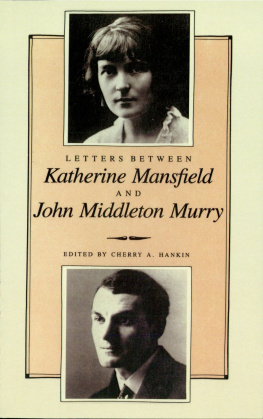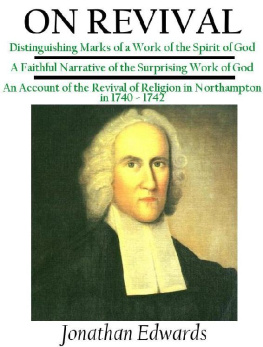First published in Great Britain in 2015 by
PEN & SWORD MILITARY
an imprint of
Pen and Sword Books Ltd
47 Church Street
Barnsley
South Yorkshire S70 2AS
Copyright Carol Lovejoy Edwards, 2015
Unless otherwise stated Newspaper cuttings are from The Chronicle, courtesy of Mansfield Library.
ISBN: 978 1 47382 315 0
PDF ISBN: 978 1 47386 632 4
EPUB ISBN: 978 1 47386 631 7
PRC ISBN: 978 1 47386 630 0
The right of Carol Lovejoy Edwards to be identified as the author of this work has been asserted by her in accordance with the Copyright, Designs and Patents Act 1988.
A CIP record for this book is available from the British Library
All rights reserved. No part of this book may be reproduced or transmitted in any form or by any means, electronic or mechanical including photocopying, recording or by any information storage and retrieval system, without permission from the Publisher in writing.
Printed and bound in England
by CPI Group (UK) Ltd, Croydon, CR0 4YY
Typeset in Times New Roman by Chic Graphics
Pen & Sword Books Ltd incorporates the imprints of
Pen & Sword Archaeology, Atlas, Aviation, Battleground, Discovery, Family History, History, Maritime, Military, Naval, Politics, Railways, Select, Social History, Transport, True Crime, Claymore Press, Frontline Books, Leo Cooper, Praetorian Press, Remember When, Seaforth Publishing and Wharncliffe.
For a complete list of Pen and Sword titles please contact
Pen and Sword Books Limited
47 Church Street, Barnsley, South Yorkshire, S70 2AS, England
E-mail:
Website: www.pen-and-sword.co.uk
CHAPTER 1
1914
Eager for a Fight
Like every other town, village and city in the United Kingdom, during 19141918, Mansfield sent thousands of men to join the war effort. Mansfield also played host to several thousand soldiers who were trained at Clipstone Camp just outside the town. Up to 30,000 men were housed in the camp at its peak and their impact on the town was enormous. All aspects of local life were affected from Sunday church services, to trade and transport. And, of course, there were some who managed to take advantage of the opportunities presented to them by this dramatic increase to the towns population.
At the outbreak of war, Mansfield was a thriving market town as well as a mining community and industrial centre. Many miners were torn between the desire to join up and do their bit as soldiers and the knowledge that by staying in the pit they were helping to provide the thousands of tons of coal needed to keep Britain and its army going in wartime.
Welbeck Abbey, the seat of the Duke of Portland, was situated near Mansfield. The Duke and Duchess often held house parties on the estate to which British and European royals were invited, including King George V and Queen Mary, as well as dignitaries such as Lord Kitchener.
Archduke Franz Ferdinand of Austria-Hungary and his wife, Sophie Duchess of Hohenberg, visited Welbeck Abbey in November 1913. They had just spent a week with King George V and Queen Mary at Windsor and on 22 November they arrived at Warsop Station, where they were met by limousines for the drive to Welbeck Abbey. A large crowd had also gathered to cheer the motorcade along.
Other guests at Welbeck that weekend included the Duke and Duchess of Devonshire, of Chatsworth House, Derbyshire; Count Mensdorff, the Austro-Hungarian Ambassador; Lord and Lady Salisbury; and Arthur Balfour, a former Conservative Prime Minister. The main reason for their visit was the shooting, which they experienced at Clowne Hills, Gleadthorpe and Clipstone, where the Archduke narrowly avoided being injured by an accidental stray bullet during the days shooting.
Less than one year later Archduke Franz Ferdinand would be dead and several members of the shooting party would be on opposite sides of a brutal war.
Royal Visit.
The Royal Daimler.
In June 1914 King George V and Queen Mary made a return visit. The royal couple arrived at Welbeck Abbey on 24 June for an overnight stay during their Royal Tour of the Midlands. On the following day, the King officially opened the new wing of the Mansfield Hospital. This was followed by a visit to one of Mansfields largest employers, the tin makers Messrs Barringer, Wallace, and Manners. The King and Queen had a tour of the factory before making a surprise visit to the cottage home of miner Elijah Mottishaw and his wife Sarah. The Duke and Duchess of Portland accompanied the King and Queen inside the Mottishaws house and Queen Mary was said to be particularly interested in seeing the kitchen.
The local newspapers were full of pictures and stories about the royal visit for several days afterwards, contrasting sharply with the growing tensions in Europe and the possibility of war growing more certain every day.
Domestic Life
There was not much evidence of the war that was being fought overseas in Mansfield during August 1914. Local people were aware of the war but it did not affect daily life too much in those first few weeks. The only visible signs were the soldiers heading out from the railway station, to join their regiments for training at various camps around the country.
One of the first batches to sign up.
Despite the rumblings of war, the towns annual flower show was still held that summer, although the Mansfield Chronicle reported that the cut flowers were not up to the standard set in previous years. However, visitors to the show could be cheered up by a capital collection of music from the Mansfield Colliery Band, the sight of the sack race, or even the ham slashing competition. Similarly, the Fanciers show, a traditional event in mining areas, also went ahead that summer. It encompassed not just pigeons, but poultry, rabbits, and caged birds, all displayed by their owners in the hope of achieving a rosette.
The Welbeck Tenants Agricultural Society annual show was hit by rain in August. Heavy downpours on the afternoon of the show reduced the attendance from 8,500 the previous year to 6,000. As part of the festivities, on the same day the Duke of Portland held a house party. One of the usual guests, Lord Kitchener, was kept away by the momentous events of the previous few weeks. The guests, said to number around 1,000, marked the occasion by singing the National Anthem and drinking a toast to the King.
Shows and competitions distracted the towns population from the struggles of their everyday lives, from their work and home lives and from the war overseas. At this time working class people often lived in cramped, substandard accommodation and over-crowding was common. To add insult to injury, residents could be prosecuted for housing too many people under one roof. Joseph Rodgers of Pleasley Hill was charged under the Public Health Act with allowing his house to become so overcrowded as to be injurious to the health of the inhabitants. The two-bedroomed house accommodated Mr Rodgers and his wife, and their five children. Some of the elder children were working, but with low wages and a shortage of housing at the time, and like many others in the town, they had few options.
















